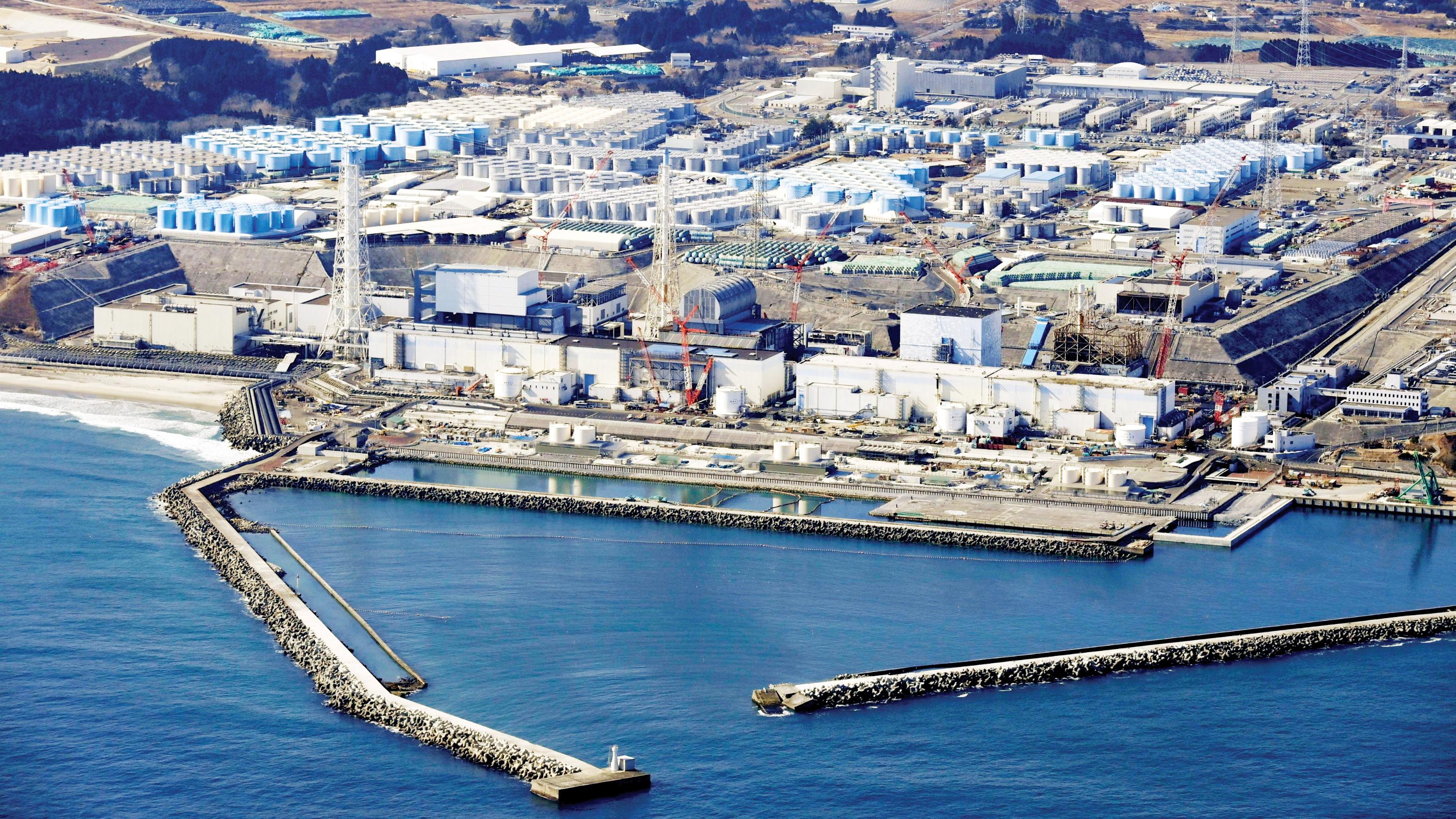Experts urge firm regional stance as Tokyo moves step closer to Fukushima discharge plan
 Storage tanks hold treated water at the Fukushima Daiichi nuclear power plant in Okuma, Fukushima prefecture, Japan, as seen on April 13, 2021. (KYODO NEWS VIA AP)
Storage tanks hold treated water at the Fukushima Daiichi nuclear power plant in Okuma, Fukushima prefecture, Japan, as seen on April 13, 2021. (KYODO NEWS VIA AP)
Japan’s plan to dump radioactive wastewater from the stricken Fukushima nuclear power plant will endanger the lives of people in the Asia-Pacific region, experts say, calling for stepped-up efforts against the ocean disposal from the countries most at risk.
South Koreans have been among those expressing their opposition to the plan, and voices have again been raised after Japan moved a step closer to implementing its planned discharge of the nuclear-contaminated water from next year, following the recent approval of the plan’s details by the nation’s nuclear regulator.
“The discharge of wastewater from Fukushima is an act of contaminating the Pacific Ocean as well as the sea area of South Korea,” said Ahn Jae-hun, energy and climate change director at the Korea Federation for Environment Movement, an advocacy group in Seoul.
“Many people in South Korea believe that Japan’s discharge of the Fukushima wastewater is a wrong policy that threatens the safety of both the sea and humans,” Ahn told China Daily.
Last month, Japan’s nuclear regulator approved the plan to discharge wastewater into the Pacific Ocean from the Fukushima Daiichi power plant, after it built up a huge amount of radiation-tainted water. The water has been collected and stored in tanks following efforts to cool down the reactors after an earthquake and tsunami struck Japan in 2011.
The dumping plan has drawn fierce opposition from government officials and civic groups in South Korea, one of the world’s major consumers of seafood.
On Aug 1, South Korea’s Minister of Oceans and Fisheries Cho Seunghwan said the government is considering whether to take the issue to the International Tribunal for the Law of the Sea, Yonhap News Agency reported.
Cho said the government’s primary plan is to prevent Japan from releasing the contaminated water. “We do not accept the release plan”, he said.
Ahn said radioactive materials can generate long-term effects and it remains unclear how they will affect the marine ecosystem.
Though the South Korean government is considering taking the issue to the international tribunal, Ahn said it will be difficult to quantify the potential damage.
South Korea has said it will conduct a thorough analysis and revision of the impact of Japan’s plan, but the government has not received enough data from Japan to conduct such research, South Korea’s Hankyoreh newspaper reported in June.
After Japan’s nuclear regulator approved the Fukushima discharge plan, South Korean President Yoon Suk-yeol said Tokyo needs to transparently explain and gain consent from neighboring countries before releasing the contaminated water.
Shaun Burnie, a senior nuclear specialist with Greenpeace Germany, said the environmental group is concerned about the potential impact of the water’s release on the wider Asia-Pacific region.
The level of exposure depends on multiple variables including the concentration in seawater and how quickly it concentrates, disperses and dilutes, forms of life, and the type of radionuclide released and how that disperses or concentrates as it moves through the environment, Burnie said.
“The concentrations are of direct relevance to those who may consume them, including marine species like fish and, ultimately, humans,” Burnie told China Daily.
Noting that the Fukushima water issue comes under the United Nations Convention on the Law of the Sea as it is a form of pollution to international waters, Burnie said there are strong grounds for individual countries to file a legal challenge against Japan’s plan.
“Our view is that in a number of key principles of international law, the Japanese government has failed to comply … (in assessing) the many, many impacts the radioactivity will have over the years,” said Burnie, citing, in particular, the need for a comprehensive environmental impact assessment.
“This has not been done either by the Japanese government, TEPCO or the IAEA,” said Burnie, referring to Tokyo Electric Power Company Holdings, the operator of the Fukushima Daiichi nuclear power plant; and the International Atomic Energy Agency.
Ahn, from South Korea, said joint expressions of opposition in the region could force the Japanese government to choose a safe method to deal with the wastewater instead of dumping it into the sea.
On Aug 4, construction began on a pipeline to transport the nuclear wastewater from hillside storage tanks to a coastal facility before its planned release into the ocean next year, according to TEPCO.
China is among the neighboring countries that have voiced opposition to the Fukushima discharge plan.
A Foreign Ministry spokesman has said that it is extremely irresponsible if Japan ignores the concerns and strong opposition from all parties and insists on carrying out the disposal plan.


